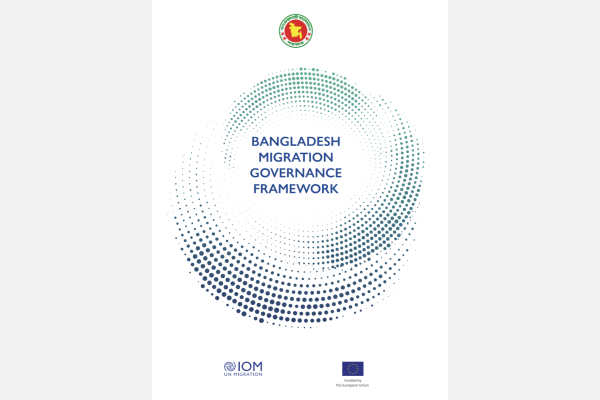Repository of Practices

Bangladesh Migration Governance Framework
Dates
Type of practice
Summary
This framework covers two broad categories of migration: (1) international migration; and (2) internal migration. International migration includes two broad types – outward migration (outmigration) and inward migration (in-migration). The indicators and sub-indicators used to analyse the subject and design the framework were drawn from the Migration Governance Indicators (MGI). To supplement, complement and validate the findings, primary information – which is qualitative in nature – was collected from relevant stakeholders through KIIs, in-depth interviews and FGDs. The development of the framework was guided by two technical committees formed by the Ministry of Expatriates’ Welfare and Overseas Employment (MoEWOE) and the Ministry of Foreign Affairs (MoFA). A national sharing and validation workshop on this framework was organized in September 2018 in Dhaka bringing together relevant representatives from government, NGOs/CSOs, private sector, development partners and media among others. Relevant suggestions and feedback from the workshop were used to finalize this framework.
Organizations
Main Implementing Organization(s)
Benefit and Impact
"Already, Bangladesh has gone ahead and finalized a draft national strategy on migration governance in consultation with all stakeholders and with assistance from IOM."-Bangladesh Statement in the Plenary of the High-level Intergovernmental Conference to adopt the Global Compact for Safe, Orderly and Regular Migration by Ambassador H.E. Mr. Md. Shahidul Haque, Foreign Secretary of Bangladesh, 10-11 December 2018, Marrakech, Morocco
Key Lessons
Innovation
Additional Resources
Date submitted:
Disclaimer: The content of this practice reflects the views of the implementers and does not necessarily reflect the views of the United Nations, the United Nations Network on Migration, and its members.
More Related Practices:
- Kenya GCM Implementation Plan (2023-2027)
- Evaluando el Pacto Mundial para la Migración Segura, Ordenada y Regular: Propuesta de Indicadores de la Sociedad Civil
- Regional Migrant Response Plan (MRP) for the Horn of Africa and Yemen
- Regional Inter-Agency Coordination Platform for Refugees and Migrants from Venezuela (R4V)
- Media as a tool of advocacy and supporting mechanism
Peer Reviewer Feedback:
*References to Kosovo shall be understood to be in the context of United Nations Security Council resolution 1244 (1999).
Newsletter
Subscribe to our newsletter.